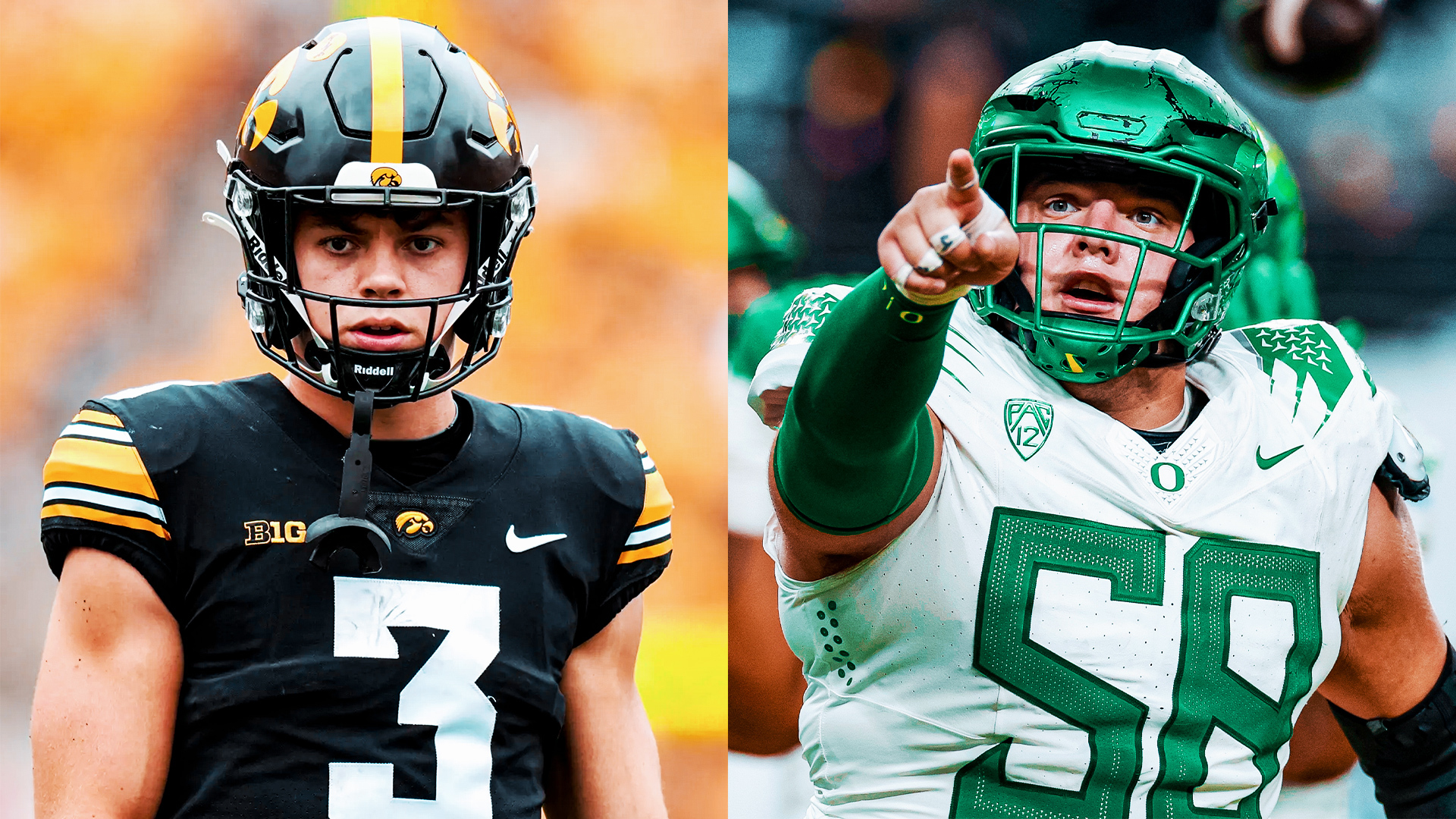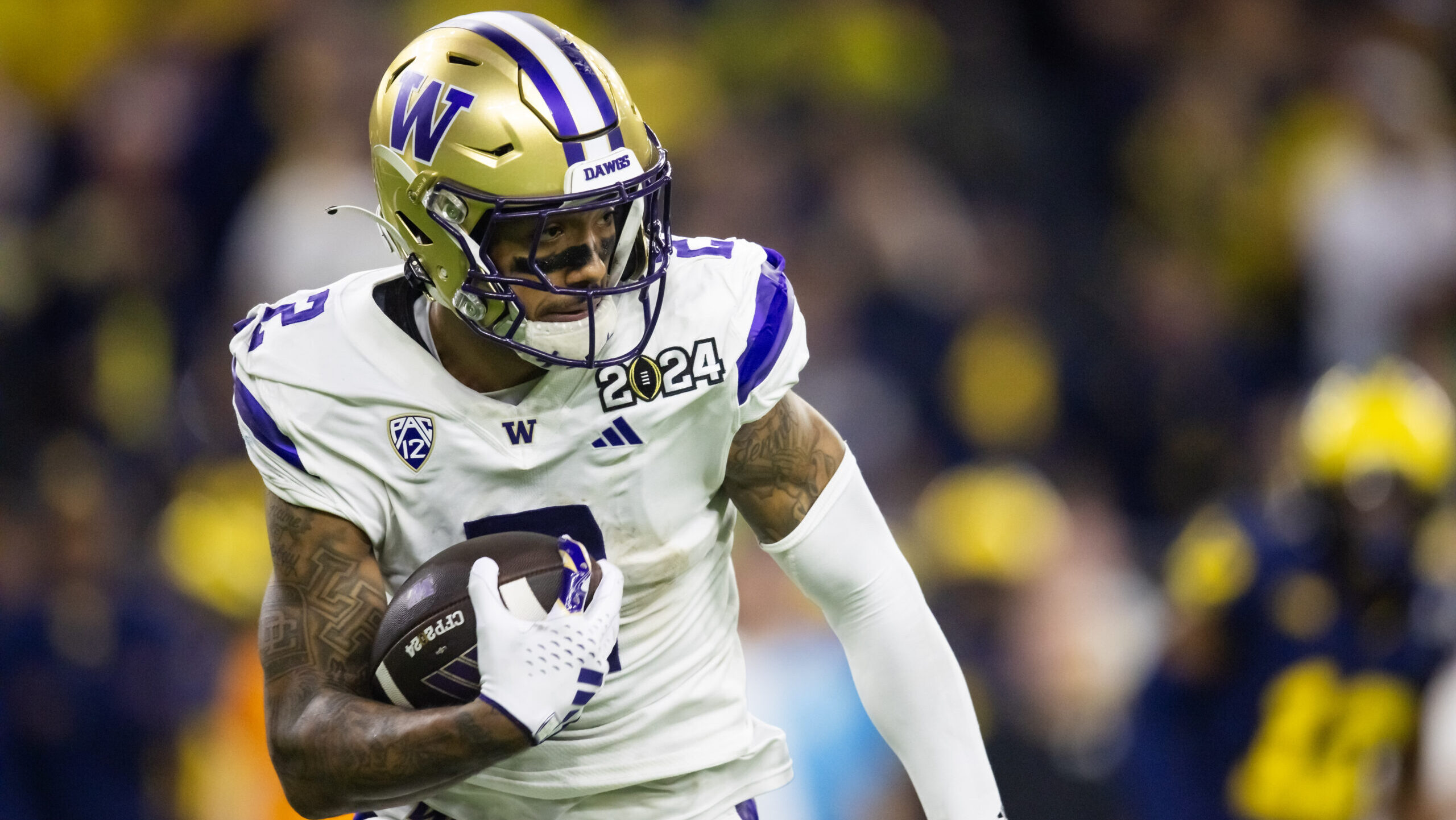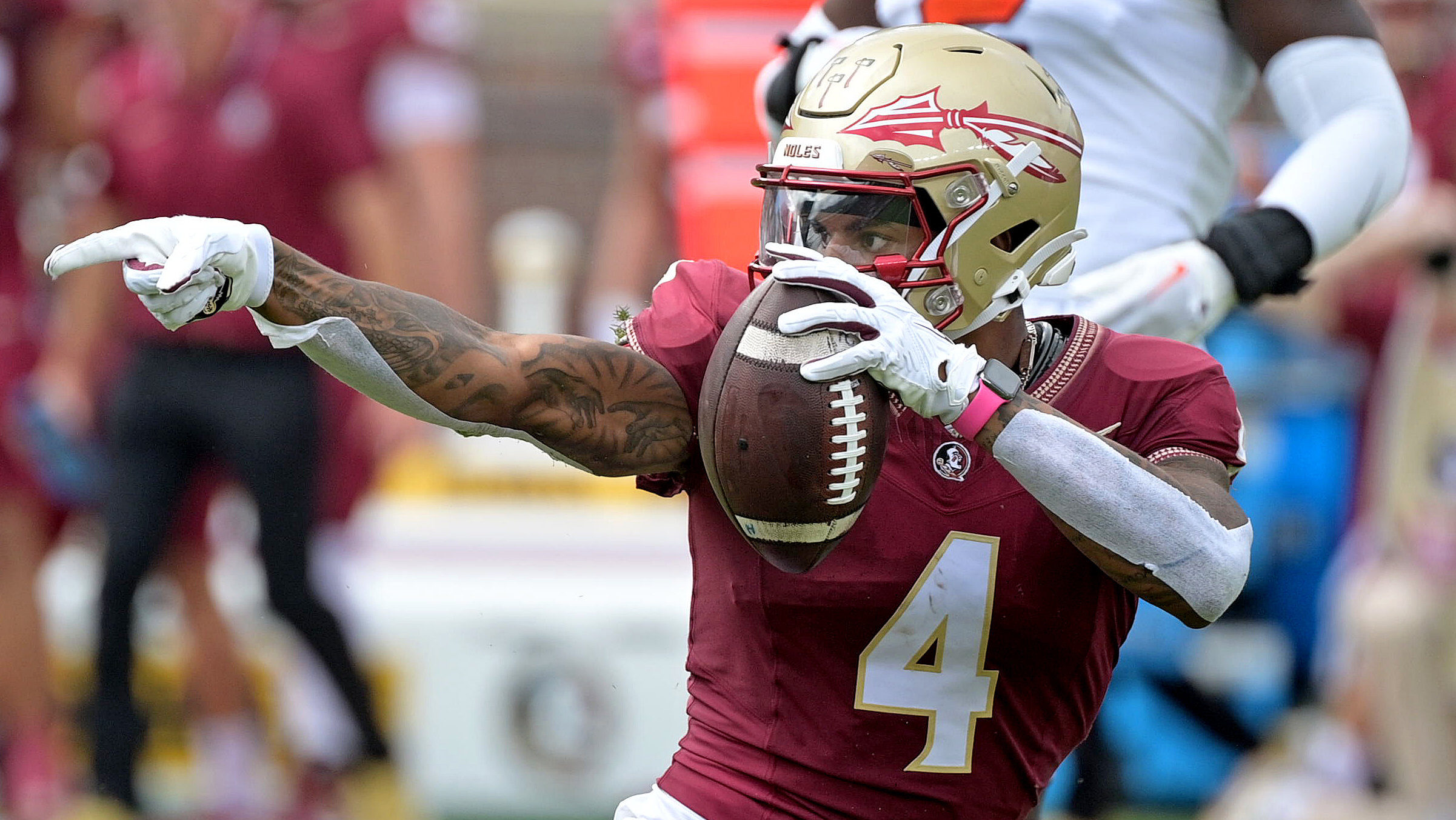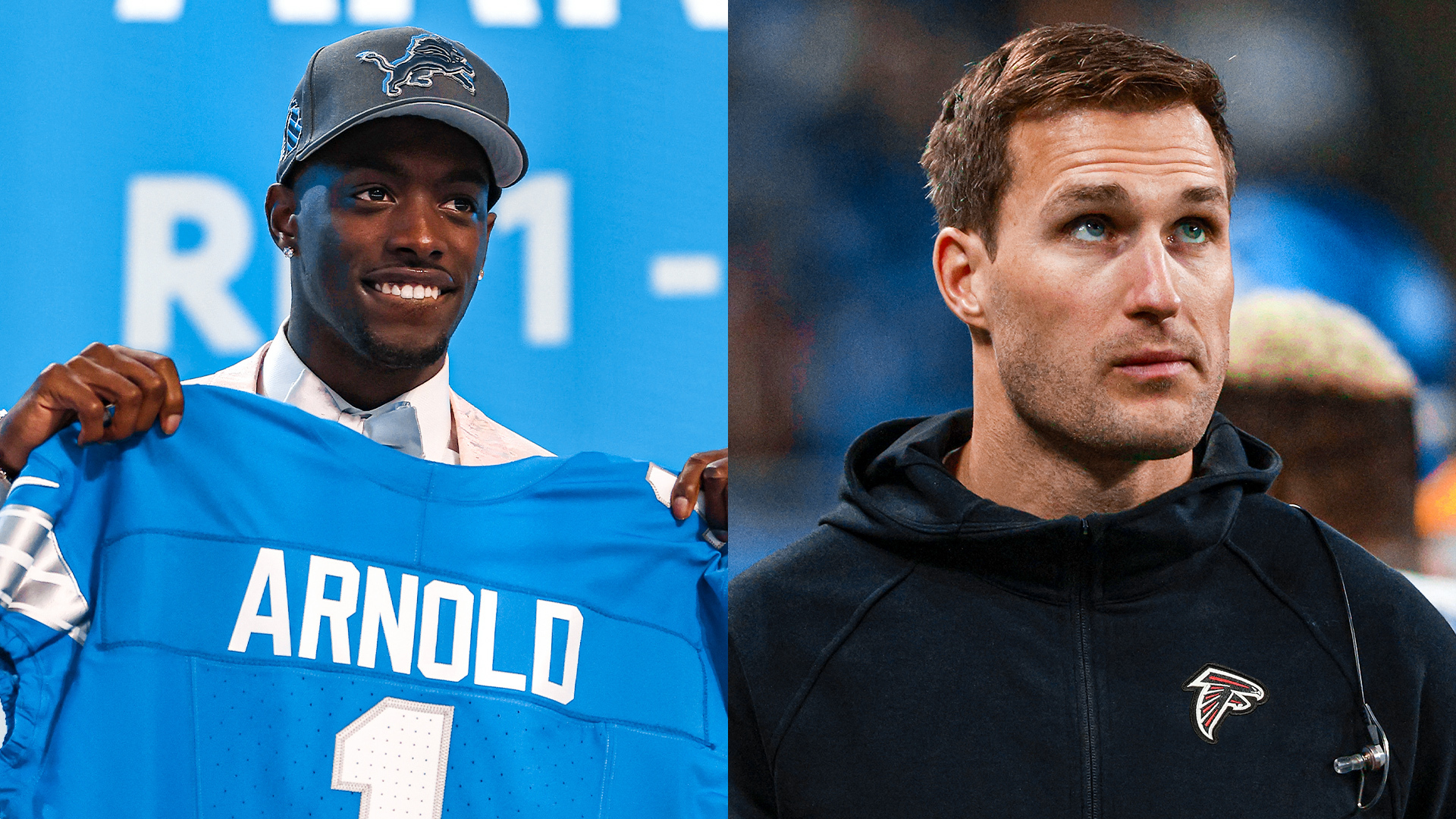Analysis
2/7/23
6 min read
What Is a Super Bowl Worth? Eagles QB Jalen Hurts Is About to Find Out
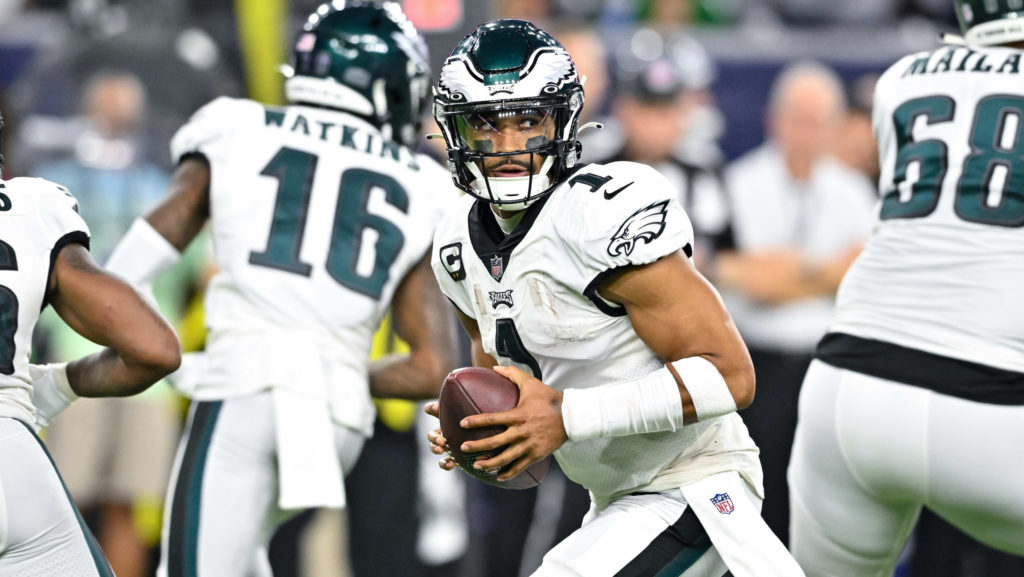
When I was with the Philadelphia Eagles, we had a phrase we used when confronted by a decision that seemed tough to resolve but, in reality, really wasn’t. We’d say, “That’s a good problem,” because we knew how it would end.
No matter what happened, we couldn’t lose.
Well, that’s how I view Philadelphia’s next contract with quarterback Jalen Hurts. I don’t know when it happens, and I don’t know how it gets done. But I do know this: It’s a good problem for the Eagles, because, in the end, nobody will lose.
Hurts is 24 and one of the NFL’s premier young quarterbacks. He led the Eagles to the playoffs in each of his two seasons as a starter. He won 16 of 17 starts this season. He’s a league MVP candidate, and he's about to play in his first Super Bowl.
It doesn’t get much better than that.
Then where, you ask, is the problem? Hurts is about to complete his third pro season, and recent history (see Josh Allen, Patrick Mahomes and Kyler Murray) tells us it's a good time for both Hurts and the Eagles to start talking about a new contract. Based on the latest returns for quarterbacks, including veterans Russell Wilson and Aaron Rodgers, that deal should net Hurts something in the neighborhood of $47 million to $52 million a year and should take no more than a couple of minutes to negotiate.
Top NFL Quarterback Contracts
| Player | Total Value | Avg./Year | Fully Guaranteed |
| Aaron Rodgers | $150,815,000 | $50,271,667 | $101,415,000 |
| Russell Wilson | $245,000,000 | $49,000,000 | $124,000,000 |
| Kyler Murray | $230,500,000 | $46,100,000 | $103,300,000 |
| Deshaun Watson | $230,000,000 | $46,000,000 | $230,000,000 |
| Patrick Mahomes | $450,000,000 | $45,000,000 | $63,081,905 |
| Josh Allen | $258,000,000 | $43,000,000 | $100,000,000 |
| Derek Carr | $121,422,481 | $40,474,160 | $24,900,000 |
| Matthew Stafford | $160,000,000 | $40,000,000 | $63,000,000 |
| Dak Prescott | $160,000,000 | $40,000,000 | $95,000,000 |
SOURCE: Over The Cap
If it doesn’t, somebody’s not acting in good faith.
OK, so that’s not an issue. What may be, however, is the length of the deal. The Eagles have a history dating back to 1998, my first year in their front office, of identifying their best young players early and locking them down to long-term deals in exchange for market discounts. Frankly, it’s how they’ve managed their salary cap better than most and retained core talent while remaining active in free agency.
It’s an approach that works for the club, but it may not be one that works for Hurts.
In fact, I’d argue he shouldn’t agree to a long-term deal at all but, instead, seek a contract at no more than four years — and three if he can get it. The reason? The salary cap. It just jumped from $208.2 million to $224.8 million this year, a hike of $16.6 million. It doesn’t take an MBA to figure out what that means four years from now.
It will be in the neighborhood of $300 million.
It is within that context an intriguing game of chess between the Eagles and Hurts is about to begin. The Eagles will push for a long-term deal because the cap will continue to skyrocket, and they’d prefer to negotiate – as they should – when it’s $225 million as opposed to $300 million.
So, they’ll sell Hurts on an extended offer with aggressive guarantees, arguing it’s more than a fair-market shake; it’s a commitment to him that others signing quarterbacks to three-and-four-year deals weren’t willing to make. Moreover, it will give them the flexibility to plan for the future and build around a quarterback (OK, Hurts) making $47 million to $52 million a year.
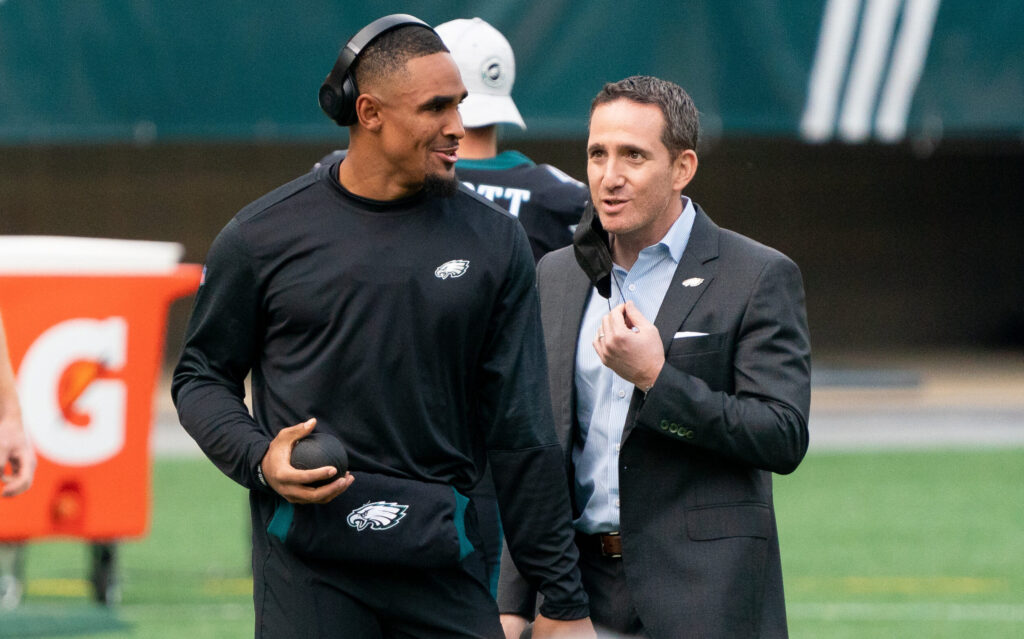
All of that makes sense … to the Eagles. It shouldn’t, however, affect what makes sense to Hurts. What should is a settlement that expires in three or four years when the cap reaches another stratosphere.
Let’s say Hurts does a four-year deal. At his age, he’s almost certain to collect all of that money during the lifetime of the contract. But his focus should go beyond the earnings from his next contract. It should extend to his career earnings, and they will be affected by the length of this deal.
They could also be affected by the next contracts for Joe Burrow and Justin Herbert, both of whom just completed their third pro seasons. If I were Hurts’ agent, I’d tell the Eagles we want something done, but we’d like to wait to see what the market is when Burrow and/or Herbert weigh in. I mean, why rush into something when either quarterback could blow the lid off the market?
My sense, however, is the Eagles want something done quickly, and why not? They know waiting on Burrow or Herbert could hurt them. If Herbert gets something like $50 million a year, what does that mean for a quarterback who just took his team to the Super Bowl? I think you know the answer. If we’re just looking at what the Eagles achieved since Hurts became their quarterback, he has as compelling a story to tell as anybody who negotiated a deal in a long time.
The only way a Herbert deal could benefit Philadelphia is if it comes in at a surprisingly low average and is long-term. Anything else is a potential land mine. And Burrow? In return for not gaining a fully guaranteed contract, his deal could catapult to $55 million a year.
Maybe now you understand why the Eagles would like this resolved quickly. It won’t be easy, but that’s why I call this “a good problem.” Sooner or later they have to do a deal with Hurts, and, trust me, that’s a much better situation than thinking about trading for, say, a Derek Carr or trying to acquire one of the top three picks of the draft.
Plus, in the end, look what happens: Hurts has financial security, Philadelphia locks down its franchise quarterback, and both sides win.
Joe Banner is a former front office executive for the Philadelphia Eagles and Cleveland Browns. He was a part of an Eagles franchise that made a Super Bowl and played in four NFC Championship Games. Follow him on Twitter at @JoeBanner13
WATCH: Super Bowl's Greatest Home-Run Threat


